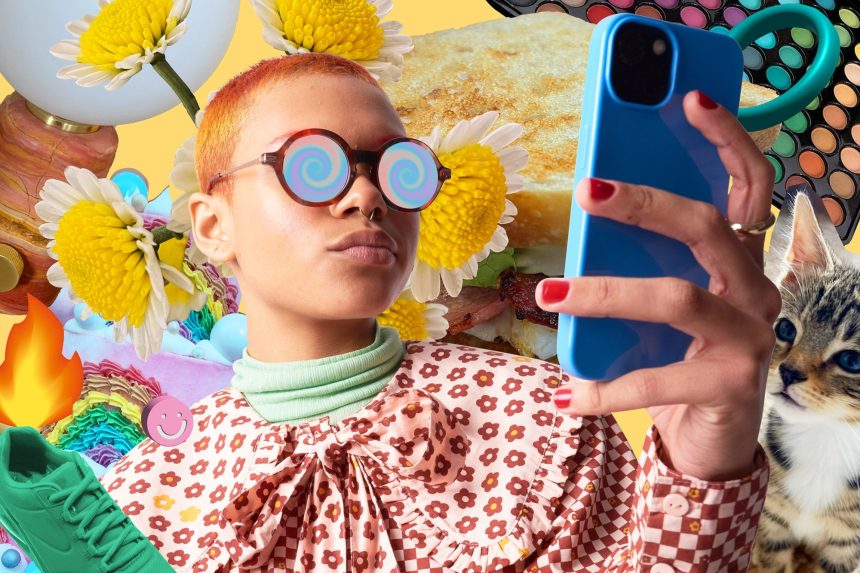As a marketer, I love seeing big brands break free from corporate norms and have fun with their marketing. Take Wendy’s, which is well-known for its saucy Twitter personality, or Mailchimp, which uses memes, business discourse and insights on timely trends on its TikTok. Both organizations boldly inject personality and humor into their social presence. And many others have similarly found their own groove.
But the reality for most big brands (especially B2Bs) is quite the opposite: Bound by stringent corporate marketing guidelines, they carefully color within the lines, which can make for bland websites, stiff messaging and content that is out of date or outright misses the mark.
It’s a stark contrast to the tactics I’ve seen popularized by some of the most marketing-savvy digital trailblazers: the creators and influencers developing breakthrough approaches to promoting themselves, attracting and engaging followers and building a loyal base of customers.
I’ve had a front-row seat to how creators build their brands by passionately sharing their skills and knowledge in what is often raw, unfiltered and compelling content. Without the ties that bind larger companies, they can monetize their often small but engaged audiences. It’s time big brands pay attention.
As someone who’s built a career on modernizing marketing approaches and helping B2B brands overcome their stuffiness, I believe it’s critical that big companies dip their toes into these waters — or suffer the consequences in a sea of marketing mediocrity. You don’t need to hire a Creator in Chief (though some brands have) to emulate creator content or approaches. These four steps will get you on your way:
Related: Modernize your Marketing with these Brilliant Tactics
1. Be a trustworthy teacher
If there’s one common thread among the hundreds of thousands of creators who are marketing their businesses, it’s this: Freely sharing knowledge feeds customer needs — and keeps them coming back. Many B2B brands already know this and have prioritized educational content marketing.
But creators have gone a step further to harness the power of education as a growth tool — creating courses, building communities and leveraging their skills and experience in more structured (and lucrative) ways. Our research reveals that microlearning is on the rise, and people are looking to short-term courses from trusted teachers to add to their skills and enrich life and work.
Brands like Hootsuite, Shopify and Hubspot have hopped on the trend by establishing online learning academies, tapping into the growing demand for self-paced learning options. And, like creators, they’re discovering that this approach enables new revenue streams and customer loyalty.
2. Don’t be afraid to be playful or cute
When I worked at Hootsuite, we sent every email in the voice of our mascot Owly. It was cute, and research has shown that humans respond to cuteness. But when we expanded our marketing strategy to an enterprise audience, we thought twice about using Owly’s voice. Ultimately, we decided that a cheeky owl, no matter how wise, was not appropriate for enterprise customers.
At the time, the decision felt right. But if I had to make the call again, I would stick with the owl. In today’s market, playfulness has become just as effective — and important — in enterprise marketing. Even enterprise brands are operated by humans. And humans appreciate levity.
Of course, there are cases where playfulness is not appropriate. But in 2023, your marketing needs to be memorable, personable and fun. Creators are masters at this, whether they’re tapping into the power of viral memes, quirky self-deprecating videos or cultural hot takes, and they offer endless examples of how to do it effectively.
Related: Creative Marketing Ideas to Get More Customers and Followers
3. Show a little humanity
A traditional marketing team wouldn’t typically feature their kids, partners or pets in their campaigns, but for many creators, like Brandon Doerksen, who runs the Thrive Training Institute, or Sunny Lenarduzzi, who teaches how to build an online business, that’s often par for the course. Providing a window into their whole lives is just how they do business, and it’s key to what has made creator marketing so engaging: it’s human and relatable.
B2B brands, especially, often take the opposite approach: removing all traces of humanity from their content — or worse, forcing a human brand voice that comes across as fake or disingenuous. And this has only been exacerbated by generative AI. Studies have shown that customers want to align themselves with brands they can relate to on a human level, and these kinds of relationships lead to greater trust and loyalty.
One way to make content more human is to literally make it about the humans behind your brand: employee profiles, customer stories and leader think pieces. Bring your people out from behind the curtain, and let your audience get to know them.
4. Jump in on trends to test the waters
Creators are nothing if not agile. They’re often early adopters of new tools and tech, and they jump in with content and products in spite of potential imperfections. It’s an approach software developers use, too: launching beta products with the intent to learn and improve as they go.
This kind of agility is tougher for big brands. It’s something I’ve been pushing for years, and it always feels uncomfortable. Recently, we used this approach to put together a webinar on Threads to assist creators with the new social network hot on the heels of its launch. We did something similar with a 40-page AI for Creators report, which we developed within weeks. Both these trends were hot, and we knew we couldn’t wait.
In a digital marketing landscape that moves fast, marketers need to react with agility. Part of that is having the confidence to do so by hiring people whose skills and judgment you trust. Give them some parameters and license to do good, fast work — otherwise, you will be behind the eight ball.
Of course, you don’t need to jump in on every trend. Pick one that’s relevant to your audience, and see how it feels to channel your inner creator! I promise, the water’s warm.
Related: 5 Digital Marketing Trends to Know for the Decade
Read the full article here









